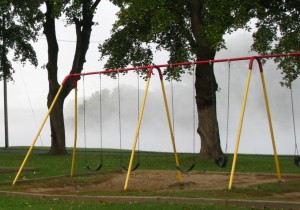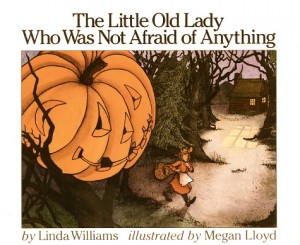 . . Roy Den Hollander vs. Ladies’ Night ..
. . Roy Den Hollander vs. Ladies’ Night ..  ..
..
peering into
the deep well, two boys
talk about girls
…… by George Swede – The Heron’s Nest
 Federal District Court Judge Miriam Goldman Cedarbaum (who’ll be 80 years old next year) bounced avowed anti-feminist Roy Den Hollander from her Manhattan courtroom last Monday — rejecting his claim that bars and night clubs holding ladies’ nights (where women are offered free or reduced-price admission or drinks) are engaged in unconstitutional gender discrimination against males under the Equal Protection Clause. See “Judge to anti-feminist: Ladies’ night is alright” (AP, Sept. 30, 2008; “Ladies Night OKd by judge” (New York Daily News, Sept. 30, 2008).
Federal District Court Judge Miriam Goldman Cedarbaum (who’ll be 80 years old next year) bounced avowed anti-feminist Roy Den Hollander from her Manhattan courtroom last Monday — rejecting his claim that bars and night clubs holding ladies’ nights (where women are offered free or reduced-price admission or drinks) are engaged in unconstitutional gender discrimination against males under the Equal Protection Clause. See “Judge to anti-feminist: Ladies’ night is alright” (AP, Sept. 30, 2008; “Ladies Night OKd by judge” (New York Daily News, Sept. 30, 2008).
- Click for Hollander’s Complaint in the lawsuit, which was brought as a class action on behalf of all similarly-situated males, and related Press Releases.
Judge Cedarbaum reminded Hollander that the 14th Amendment refers to state action not private action and that private clubs — such as defendants A.E.R., Lotus, Sol, China Club, and the Copacabana — can charge patrons whatever they wish. Hollander had argued that bars with liquor licenses are so heavily-regulated their conduct should be deemed state action. In response, as Bob Ambrogi notes at Legal Blog Watch:
 “Hollander dismissed the dismissal, calling the judge a feminist and describing her ruling as consistent with the anti-male discrimination embedded in many American institutions. ‘This lawsuit would have put an end to guys financially subsidizing girls to party at nightclubs,’ he told the New York Daily News.”
“Hollander dismissed the dismissal, calling the judge a feminist and describing her ruling as consistent with the anti-male discrimination embedded in many American institutions. ‘This lawsuit would have put an end to guys financially subsidizing girls to party at nightclubs,’ he told the New York Daily News.”
Of course, claims that Ladies’ Nights are unfair to male patrons are not new. E.g., see the Baltimore Sun article, “New Jersey Division on Civil Rights Rules Ladies Night Promotions Are Unfair, Men Not Treated Equally,” June 17, 2004, which also tells of a 1995 finding of unfair treatment by the Maryland Commission on Human Relations. (via Consuming Interest blog) Walter Olson has covered the ladies’ night topic for years at Overlawyered.com, and succinctly states the crux of Hollander’s case at Overlawyered.com (Sept. 30, 2008):
“Although lawsuits against “Ladies’ Nights” discounts have prevailed in California and Colorado, . . . Hollander was advancing the relatively unusual argument that the discounts were unconstitutional, which failed when the judge declined to find that they constituted state action; earlier lawsuits against the discounts have generally been based on anti-discrimination statutes, and the case might have come out very differently had those theories been relied on.”
 Observers have very different reactions to legal attacks on Ladies’ Nights. The mates at Antimisandry.com strongly disagree with Judge Cedarbaum. See “Feminist judge again sides with privileged princesses..” (October 1, 2008). Meanwhile, Prof. Ann Bartow of the Feminist Law Professor weblog appears to like the Judge’s conclusion, but says the court decision “somewhat creepily notes: ‘The nightclubs said the prices charged to men aren’t so burdensome that they amount to denying them entry and male customers actually might benefit from ladies’ nights because so many women attend’.” She then muses:
Observers have very different reactions to legal attacks on Ladies’ Nights. The mates at Antimisandry.com strongly disagree with Judge Cedarbaum. See “Feminist judge again sides with privileged princesses..” (October 1, 2008). Meanwhile, Prof. Ann Bartow of the Feminist Law Professor weblog appears to like the Judge’s conclusion, but says the court decision “somewhat creepily notes: ‘The nightclubs said the prices charged to men aren’t so burdensome that they amount to denying them entry and male customers actually might benefit from ladies’ nights because so many women attend’.” She then muses:
“For an uncomfortable thought exercise, decide how you feel about all this, and then contemplate how your views of this situation might (or might not) change if the admissions or drink price differential was linked to race rather than gender.”
AARP and parents with young children might also worry about Ladies’ Nights law suits. As The Gothamist, reported in “It’s Ladies’ Night And There’s a Legal Fight” (Dec. 17, 2007):
 Deborah Swindells Donovan, a lawyer for Lotus, filed papers arguing that the “frivolous” lawsuit is based on an “ill-conceived theory. [If it] is applied to restaurants, then ‘early bird’ specials for the elderly or promotions allowing children to eat free would be discriminatory on the basis of age.”
Deborah Swindells Donovan, a lawyer for Lotus, filed papers arguing that the “frivolous” lawsuit is based on an “ill-conceived theory. [If it] is applied to restaurants, then ‘early bird’ specials for the elderly or promotions allowing children to eat free would be discriminatory on the basis of age.”
tavern’s square tank
fish swimming
in circles
…………… by George Swede – Frogpond XXXI:1 (Winter 2008)
early bird special
rubbing elbows
with a stranger
…… by Yu Chang – Upstate Dim Sum (2004/II)
The professors at The Volokh Conspiracy weblog got a little more precise in their legal arguments when they heard about Hollanders’ suit in July 2007. Illya Somin argued, presaging Judge Cedarbaum, that ladies’ nights are not unlawful gender discrimination under the Equal Protection Clause of the 14th Amendment. Prof. Somin — blending practicality and the law — also went into some depth explaining why Hollander’s suit would not be an appropriate class action on behalf of men. Under Rules 23 (A)(4) of the Federal Rules of Civil Procedure the court is requred to ensure that the class representative “will fairly and adequately protect the interests of the class.” Somin (correctly) argues:
“Hollander clearly fails to meet this requirement because many of the members of the class in question (“men charged more money or burdened by stricter time restraints than women” at the night clubs in question) actually benefit from these practices.
 “At the risk of belaboring the obvious, a key purpose of ladies nights at night clubs is to benefit (heterosexual) men. Many night clubs and bars become relatively unappealing to men because the male-female ratio is too high, reducing male patrons’ chances of picking up a date. By attracting more women [Ed. Note: and helping to ensure they are highly inebriated], ladies’ nights improve the dating odds for male patrons. . . . Many, perhaps the vast majority, of the men in the class Hollender proposes to represent have interests diametrically opposed to the result he seeks to achieve. For that reason, the district court should refuse to certify his proposed class.”
“At the risk of belaboring the obvious, a key purpose of ladies nights at night clubs is to benefit (heterosexual) men. Many night clubs and bars become relatively unappealing to men because the male-female ratio is too high, reducing male patrons’ chances of picking up a date. By attracting more women [Ed. Note: and helping to ensure they are highly inebriated], ladies’ nights improve the dating odds for male patrons. . . . Many, perhaps the vast majority, of the men in the class Hollender proposes to represent have interests diametrically opposed to the result he seeks to achieve. For that reason, the district court should refuse to certify his proposed class.”
getting drunk
on my arm
the tavern mosquitoes
……. by David G. Lanoue – from Haiku Guy: a novel
 A Steve Chapman piece two weeks ago at Reason.com rekindled the debate for many in the blogisphere. In “Ladies’ Nights and the ‘Cancer of Discrimination’” (September 18, 2008) Chapman opines that “When it comes to relations between the sexes, a little common sense goes a long way,” and therefore “it should not be sex discrimination to offer favors to one sex in order to benefit people of both sexes.” On behalf of a lot of us regular guys, Chapman points out:
A Steve Chapman piece two weeks ago at Reason.com rekindled the debate for many in the blogisphere. In “Ladies’ Nights and the ‘Cancer of Discrimination’” (September 18, 2008) Chapman opines that “When it comes to relations between the sexes, a little common sense goes a long way,” and therefore “it should not be sex discrimination to offer favors to one sex in order to benefit people of both sexes.” On behalf of a lot of us regular guys, Chapman points out:
“Why, after all, would a bar offer discounts to women? Not because the owner harbors a deep-seated hostility toward men, perpetuating centuries of oppression. People who run such establishments understand that a lot of men patronize taverns partly to meet women, and that they will come more often and stay longer if women are abundant than if they are scarce.”
happy hour
the bartender cashes
my unemployment check
….. by Ed Markowski
In response to those who, like George Washington University law professor John Banzhaf, consider Ladies’ Nights no more defensible than charging whites less than blacks [“Whities’ Nights”?], Chapman sensibly says:
“But context is crucial, and relations between the sexes are different from relations between the races. We don’t accept racially segregated restrooms, but we do accept sexually segregated restrooms. All-white colleges would be offensive, but all-female schools are not.
 “Charging whites less than blacks would suggest a desire to drive away black customers because of racial animus. Charging women less than men suggests nothing comparable.”
“Charging whites less than blacks would suggest a desire to drive away black customers because of racial animus. Charging women less than men suggests nothing comparable.”
The Reason.com article got Prof. Somin to take up the subject again, in “Should Ladies’ Nights in Bars Be Outlawed Because they Discriminate Against Men?” (Volokh Conspiracy, Sept. 18, 2008). His new post generated some interesting comments on the law and policy, and Ilya reminds those who were wondering about using federal civil rights statutes that:
“ Title II of the Civil Rights Act of 1964 only bans discrimination in places of public accommodation on “the ground of race, color, religion, or national origin.” It doesn’t forbid sex discrimination. Therefore, ladies nights in bars are perfectly legal, at least so far as Title II is concerned.”
 .. Roy Den Hollander is single these days [fair warning: he tends “to be attracted to black and Latin chicks, and Asian chicks’] and goes to clubs. However, an entertaining in-depth piece in The New Yorker, “Hey, LA-A-A-DIES!” (by Lauren Collins, August 6, 2007), notes:
.. Roy Den Hollander is single these days [fair warning: he tends “to be attracted to black and Latin chicks, and Asian chicks’] and goes to clubs. However, an entertaining in-depth piece in The New Yorker, “Hey, LA-A-A-DIES!” (by Lauren Collins, August 6, 2007), notes:
“[Hollander] was unfazed by the notion that, as a hound dog, his fight to defeminize clubs was perhaps counter to his self-interest.”
Asked in 2007 what he pictured would happen should he win his case, Hollander told The New Yorker:
“What I think will happen,” he said, “is that clubs will reduce the price for guys and increase it for girls. Every guy will have ten or fifteen more dollars in his pocket, which the girls will then manipulate into getting more drinks out of him. If they drink more, they’ll have more fun, and so will us guys. And then when she wakes up in the morning she’ll be able to do what she always does: blame the man.”
closing time – 
her eyes linger
on the rusted fender
…………….. by dagosan
The f/k/a Gang admits that we’ve been out of the Date Bar Scene a long time. [For example, we’ve never heard of (much less heard) any of the Top Ten Stripper Songs of the Moment, collected with videos at the Crossfade weblog (Sept. 30, 2008)] So, we hope our younger or hipper readers, including the lawyer denizens of Above the Law, will let us know both how they feel about any ban on Ladies’ Nights (from a legal or policy perspective), and whether the current economics and demographics of the bar scene make Ladies’ Nights an effective tool for bar and club owners.
 We’re certain of one thing, after decades of conversations in saloons, classrooms, bedrooms, lawyer lounges, and dining rooms, with people inside or out of the legal profession: Drafting a law (statute, regulation, or constitutional provision) that puts into practice general principles against discrimination and unfair or unequal treatment is not as easy as many of my relatives and friends seem to think. Almost every attempt to capture the principle of Gender Equality will seem either over-inclusive or under-inclusive to some groups or individuals.
We’re certain of one thing, after decades of conversations in saloons, classrooms, bedrooms, lawyer lounges, and dining rooms, with people inside or out of the legal profession: Drafting a law (statute, regulation, or constitutional provision) that puts into practice general principles against discrimination and unfair or unequal treatment is not as easy as many of my relatives and friends seem to think. Almost every attempt to capture the principle of Gender Equality will seem either over-inclusive or under-inclusive to some groups or individuals.
All forms of gender discrimination (treating one gender differently than the other) are not equal or equally insidious. Some respect valid gender differences, and some — like Ladies’ Nights — represent either insignificant or easily-avoided “injury” to one gender or the other, or in fact benefit many members of both genders.
Turning such differential treatment into a lawsuit does little to help move our society toward gender fairness. Rather than trying to stop Ladies’ Nights with a lawsuit, I hope disgruntled males (who either dislike “subsidizing” female patrons or simply do not care whether a bar has more females in it) will take their business to establishments not holding a Ladies’ Night. Of course, if the club with gender-equal prices does very little business on nights when few woman come through the doors, drinks at those places might actually cost more than at the bars with the long Ladies’ Night lines.
Roy den Hollander has more of his gender equality cases pending and planned. Somehow, I’m betting that few of the guys who resent Ladies’ Nights are going to respond to this plea for contributions at his website:
“I’m sure a lot of you guys out there have done well yet have been raked over the coals by females and this culture. If you want to do something about it, help finance these and future cases protecting your rights.”
mud-spattered pickup- 
four dogs watch
the tavern door
. . . by Billie Wilson – The Heron’s Nest (February 2001)
twisting the cap
from another beer . . .
jimmy’s front teeth
….. by ed markowski
 Don Wentworth of the Lilliput Review and the weblog Issa’s Untidy Hut, has announced today (October 16, 2008) that our lawyer-poet friend Roberta Beary is the winner of the 1st Annual Basho Haiku Challenge, with this poem:
Don Wentworth of the Lilliput Review and the weblog Issa’s Untidy Hut, has announced today (October 16, 2008) that our lawyer-poet friend Roberta Beary is the winner of the 1st Annual Basho Haiku Challenge, with this poem:
 .. Ms. Beary is also on the minds of many of us in the haijin community this week, because the Revelations: Unedited section of the latest issue of Frogpond (Vol. 31: 3, Fall 2008; see our prior post) has her four-page op/ed piece “Five Musings on Matters Haiku.” We can’t type up the entire Revelation for you, but will briefly touch upon each musing:
.. Ms. Beary is also on the minds of many of us in the haijin community this week, because the Revelations: Unedited section of the latest issue of Frogpond (Vol. 31: 3, Fall 2008; see our prior post) has her four-page op/ed piece “Five Musings on Matters Haiku.” We can’t type up the entire Revelation for you, but will briefly touch upon each musing: Civility in Haiku USA: Roberta notes that constructive criticism was enouraged among haijin in America in the 1990’s. She believes “things have gotten much less civil lately,” with her email box “full of complaints about the mediocrity of haiku published in today’s journal.” Roberta recommends, instead, the more “thoughtful approach” of using “a closely reasoned critique in a letter to the editor for publication.” She also reminds editors that “each haiku submitted to editors should stand on its own, regardless of the name that appears below.”
Civility in Haiku USA: Roberta notes that constructive criticism was enouraged among haijin in America in the 1990’s. She believes “things have gotten much less civil lately,” with her email box “full of complaints about the mediocrity of haiku published in today’s journal.” Roberta recommends, instead, the more “thoughtful approach” of using “a closely reasoned critique in a letter to the editor for publication.” She also reminds editors that “each haiku submitted to editors should stand on its own, regardless of the name that appears below.” Serial Presenters: Roberta muses over the soporific benefits of having the same people give virtually the same presentation at more than one conference.
Serial Presenters: Roberta muses over the soporific benefits of having the same people give virtually the same presentation at more than one conference. Over ten thousand weblogs have pledged to participate today, focusing on Poverty. For example:
Over ten thousand weblogs have pledged to participate today, focusing on Poverty. For example:
 Enjoy:
Enjoy:



 ”At the dawn of the 21st century we also have a collective responsibility to recommit ourselves to the dream; to strengthen that safety net, put the rungs back on that ladder to the middle-class, and give every family the chance that so many of our parents and grandparents had. This responsibility is one that’s been missing from Washington for far too long – a responsibility I intend to take very seriously as president.”
”At the dawn of the 21st century we also have a collective responsibility to recommit ourselves to the dream; to strengthen that safety net, put the rungs back on that ladder to the middle-class, and give every family the chance that so many of our parents and grandparents had. This responsibility is one that’s been missing from Washington for far too long – a responsibility I intend to take very seriously as president.” 

 Frank Duci was the Republican
Frank Duci was the Republican 
 p.s. My Favorite Frank Duci Story: Shortly after I moved here, then-Mayor Duci appointed his stepson to run the Schenectady Municipal Parking Authority. As the guy was an unemployed apprentice tile-layer, folks asked why he was qualified for the position. Duci responded something like “He likes people, and he has a 200 bowling average. You can’t bowl that well without having good concentration.” From then on, I confessed to whoever would listen that “I’ll never be able to get a job working for the City of Schenectady. My IQ is too high and my bowling average too low.” I sure wish I had a weblog back then (circa 1989), ’cause it would have been fun writing about our Il Duce.
p.s. My Favorite Frank Duci Story: Shortly after I moved here, then-Mayor Duci appointed his stepson to run the Schenectady Municipal Parking Authority. As the guy was an unemployed apprentice tile-layer, folks asked why he was qualified for the position. Duci responded something like “He likes people, and he has a 200 bowling average. You can’t bowl that well without having good concentration.” From then on, I confessed to whoever would listen that “I’ll never be able to get a job working for the City of Schenectady. My IQ is too high and my bowling average too low.” I sure wish I had a weblog back then (circa 1989), ’cause it would have been fun writing about our Il Duce.
 the f/k/a Gang hopes you have as lovely an October 13th as we’re having here
the f/k/a Gang hopes you have as lovely an October 13th as we’re having here  Or, peruse one or more our earlier posts discussing the mysteries and controversies surrounding the man erroneously called Christopher Columbus. “
Or, peruse one or more our earlier posts discussing the mysteries and controversies surrounding the man erroneously called Christopher Columbus. “ Before you do, why not bask in our collection of tributes to Indian Summer by f/k/a‘s Honored Guest Poets, led by Dr. Bill Owen, who is clearly becoming the haijin dean of Indian Summer.
Before you do, why not bask in our collection of tributes to Indian Summer by f/k/a‘s Honored Guest Poets, led by Dr. Bill Owen, who is clearly becoming the haijin dean of Indian Summer.

 See a new spread on Ed at Norb Blei’s Poetry Dispatch, “
See a new spread on Ed at Norb Blei’s Poetry Dispatch, “
 We all wish you several Indian Summers this Autumn of 2008. If your weather is not picture perfect for Columbus Day, we hope it isn’t at all like this
We all wish you several Indian Summers this Autumn of 2008. If your weather is not picture perfect for Columbus Day, we hope it isn’t at all like this  p.s. If you’re in search of some fine recent commentary from law-related weblogs, or you want to learn more about
p.s. If you’re in search of some fine recent commentary from law-related weblogs, or you want to learn more about 





 update (Oct. 16, 2008): See our post “
update (Oct. 16, 2008): See our post “ Halloween Sex Bogeyman laws and restrictions have far too many costs, are far too likely to create a false sense of security among parents, and seem certain to have no real effects, other than giving grandstanding politicians a boost in the polls — and helping marauding bands of adolescent pranksters and more ominous vigilantes find unsympathetic targets.
Halloween Sex Bogeyman laws and restrictions have far too many costs, are far too likely to create a false sense of security among parents, and seem certain to have no real effects, other than giving grandstanding politicians a boost in the polls — and helping marauding bands of adolescent pranksters and more ominous vigilantes find unsympathetic targets.























 “It’s one thing to forbid your child to read a book you don’t like or agree with, or to bring it into your home; it’s entirely another to try to impose such a judgment or moral standard on the public — especially in a library, whose function is to make as much information, including opinion, on as many subjects as available as possible.”
“It’s one thing to forbid your child to read a book you don’t like or agree with, or to bring it into your home; it’s entirely another to try to impose such a judgment or moral standard on the public — especially in a library, whose function is to make as much information, including opinion, on as many subjects as available as possible.” “If parents have reservations about the methods advocated by a particular author (in this case, two women doctors with teen children), they should instruct or even order their children to steer clear. But it shouldn’t be their decision to make for the rest of the community.”
“If parents have reservations about the methods advocated by a particular author (in this case, two women doctors with teen children), they should instruct or even order their children to steer clear. But it shouldn’t be their decision to make for the rest of the community.”







 We’re certain of one thing, after decades of conversations in saloons, classrooms, bedrooms, lawyer lounges, and dining rooms, with people inside or out of the legal profession: Drafting a law (statute, regulation, or constitutional provision) that puts into practice general principles against discrimination and unfair or unequal treatment is not as easy as many of my relatives and friends seem to think. Almost every attempt to capture the principle of Gender Equality will seem either over-inclusive or under-inclusive to some groups or individuals.
We’re certain of one thing, after decades of conversations in saloons, classrooms, bedrooms, lawyer lounges, and dining rooms, with people inside or out of the legal profession: Drafting a law (statute, regulation, or constitutional provision) that puts into practice general principles against discrimination and unfair or unequal treatment is not as easy as many of my relatives and friends seem to think. Almost every attempt to capture the principle of Gender Equality will seem either over-inclusive or under-inclusive to some groups or individuals.